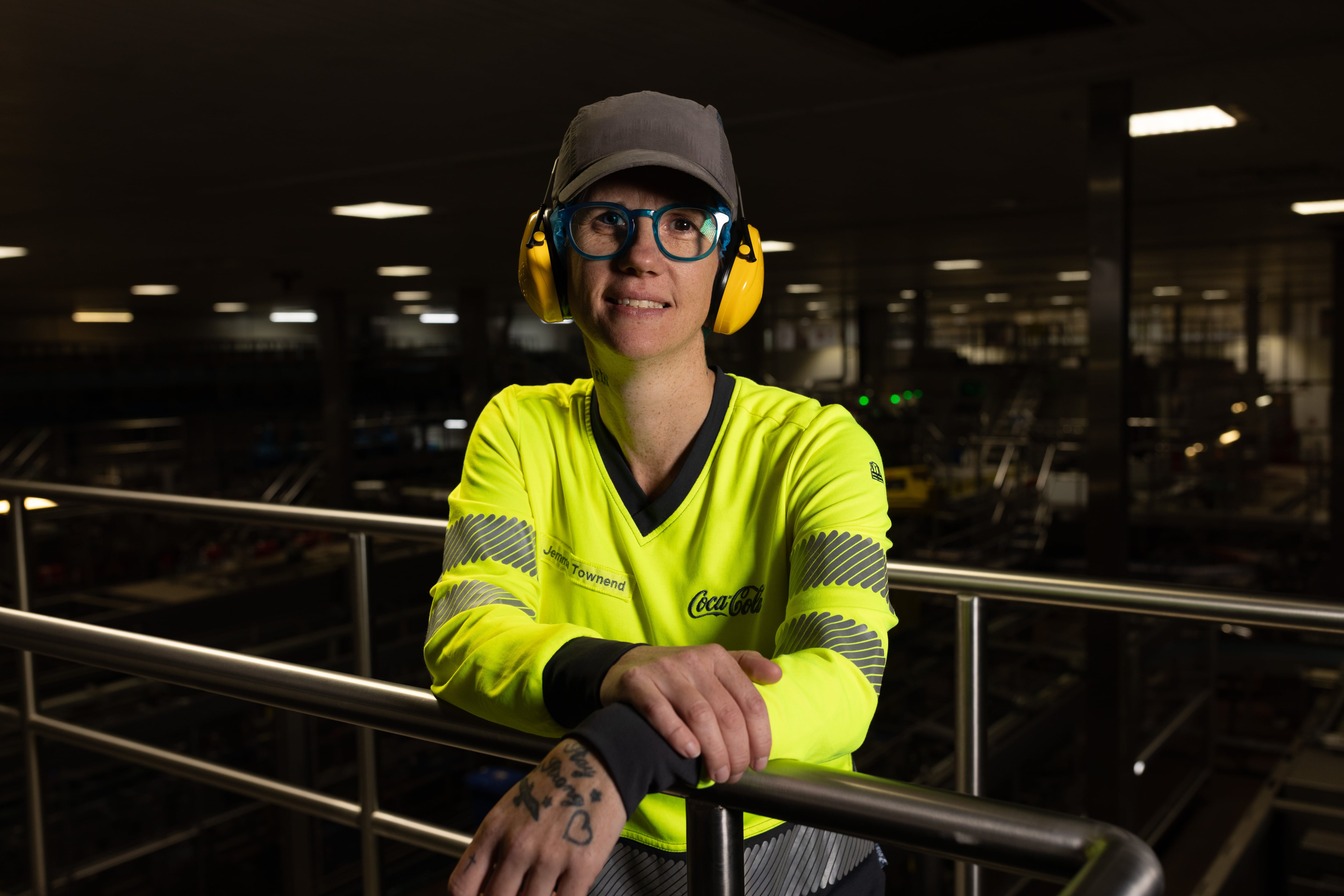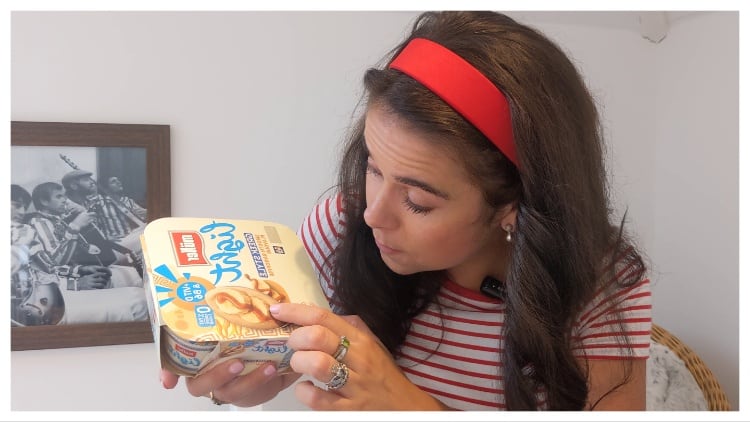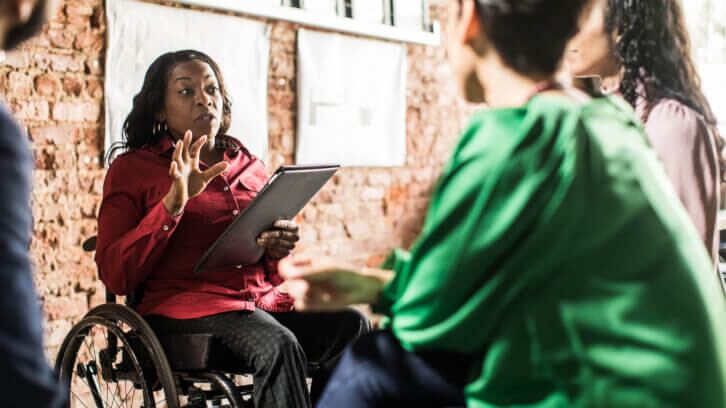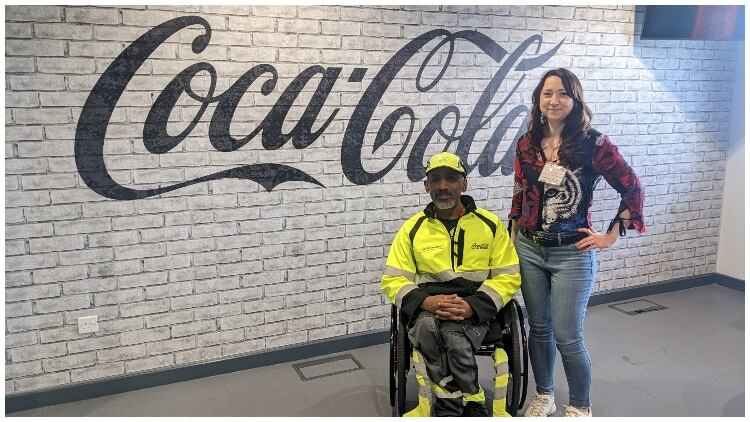It is Deaf Awareness Week (5-11 May 2025) in the UK. The theme for this year is ‘Beyond Silence’, with the campaign highlighting the importance of looking beyond the common misconceptions about deafness and recognising rich experiences, identities and contributions of those in the Deaf community.
To mark Deaf Awareness Week, Food Manufacture speaks to Jemma Townend, a modular maintenance technician at Coca-Cola Europacific Partners (CCEP), who has been profoundly Deaf since birth.
Here, Townend talks about her career, day-to-day role, and what changes she’d like to see in the wider industry.
Q: How did you get started in F&B?
A: I’ve always been drawn to opportunities that allowed me to learn new skills and work with my hands. Even as a child, I wanted to understand how things worked, and I loved taking things apart just to figure out how to put them back together again. One of my parents’ favourite (or perhaps not so favourite…) story to remind me of is when they’d bought me a new bike for Christmas, only to see me immediately dismantle it! That type of curiosity for how things work never went away.
So naturally as an adult I’ve always gravitated towards hands-on roles. Before joining CCEP, I tried out different jobs like joinery and fitting kitchens, and I even completed an electrical course. I knew I wanted a career that gave me a practical challenge every day.
I of course jumped at the opportunity to work at CCEP when I saw a posting for engineering apprentices. It fit my interests perfectly, plus the chance to work at the world‘s largest independent bottler of Coca-Cola was doubly exciting. During the recruitment process the team recognised the skills I already had and offered me a full-time role as a modular maintenance technician. The job offer for a full-time role was a pleasant surprise, but I’m proud of where it’s led me.
Q: What kinds of challenges do you face as a Deaf worker?
A: As someone who was born profoundly Deaf, over time I’ve learned a few different ways to communicate effectively – whether that’s lip reading, signing or using the help of an interpreter, depending on the environment or people I’m around.
But navigating the workplace as a Deaf person isn’t always straightforward and the challenges are often about more than just effective communication.
In manufacturing, safety is a huge consideration, and I’ve previously missed out on roles because of concerns about how my deafness might affect that. These experiences really knocked my confidence, and I’ve had moments where I questioned whether I’d find a role where I felt safe and comfortable.
Q: What does a typical day look like for you in the factory?
A: I’m a modular maintenance technician at CCEP’s Wakefield site, which also happens to be Europe’s largest soft drinks plant by volume.
Day-to-day I work with my colleague and mentor Richard on maintenance and repairs for machinery such as blowing and filling valves, and for the lines themselves across site. Together we also make sure new equipment is properly set up and ready for installation.
I’ve also started to work closely with apprentices on rotation in our department. It’s been an incredible learning experience as I continue to adapt to new ways of effectively communicating and teaching younger talent.
Q: How do you communicate with colleagues and supervisors?
A: On a typical day, I balance signing and lip-reading. CCEP also provided me with an interpreter to support me five days a week when I first joined, which was incredibly helpful as I got acquainted with the new environment, teams and general work. I’ve since transitioned to three days with an interpreter and two without – which was a bit scary at first, but the more I get to know my colleagues, the more I get a better sense of how best to communicate with them depending on the situation or task.
On the days without an interpreter I lean a bit more on lip reading, body language or visual cues. And it’s really helped push me out of my comfort zone and grow my confidence on site.
When it comes to virtual meetings, there is a platform called SignVideo which can connect you with a virtual interpreter as needed, which I’ve found quite helpful too.
Q: What tools and technologies do you use to assist with your work?
With safety being a key priority on manufacturing sites, CCEP provided me with a pager that alerts me to fire alarms or other warnings on site. My interpreters and SignVideo are helpful for meetings or conversations with larger groups.
I also have a cochlear implant (a surgical device that uses electrical signals to stimulate the auditory nerve) which gives me a sense of sound, for example I can hear certain sounds on site and get acquainted with the sound of people’s voices.
But honestly, now that I’m getting more comfortable in my environment and with the business more generally, I really enjoy getting my head stuck into a project without the need for much additional assistance or adjustments.
Q: Have you noticed any improvements in workplace accessibility over the years?
A: Considering I’ve missed out on roles previously due to safety concerns, I think seemingly small adjustments – like a pager that can buzz to alert me of a fire – is an incredible improvement that makes this field of work that much more accessible.
I’ve also been impressed with how CCEP has focused on what I can do, not what I can’t, from the hiring process through to training and into my role. They put the right support in place straight away, made safety a priority and encouraged me to build my confidence at my own pace. My colleagues have even taken on a bit of sign language to make me feel that much more welcome. And CCEP has its JustBe network, which is an employee-led community of ambassadors that are working to make each colleague feel seen, heard and more welcome at work.
Q: Can you share a memorable experience or achievement during your time at CCEP?
A: One moment that really stands out is when I was offered my current role with CCEP. It wasn’t the outcome I was expecting at all, especially after missing out on similar opportunities. But this was such a turning point for me and gave me a boost of confidence I really needed at the time. It showed that the team saw value in my skills, and my entire experience since then has been nothing but positive.
Q: What changes would you like to see in the wider industry to better support deaf workers?
A: I don’t think it has to be complicated, because small changes can make an enormous difference. Things like having someone in each team trained in basic British Sign Language, making subtitles available on screen-based comms, or even offering Deaf Awareness training for staff can help break down barriers. A bit of preparation goes a long way in making someone feel welcome and able to do their job confidently. It’s not about ticking boxes but about making inclusion a normal part of working life.





